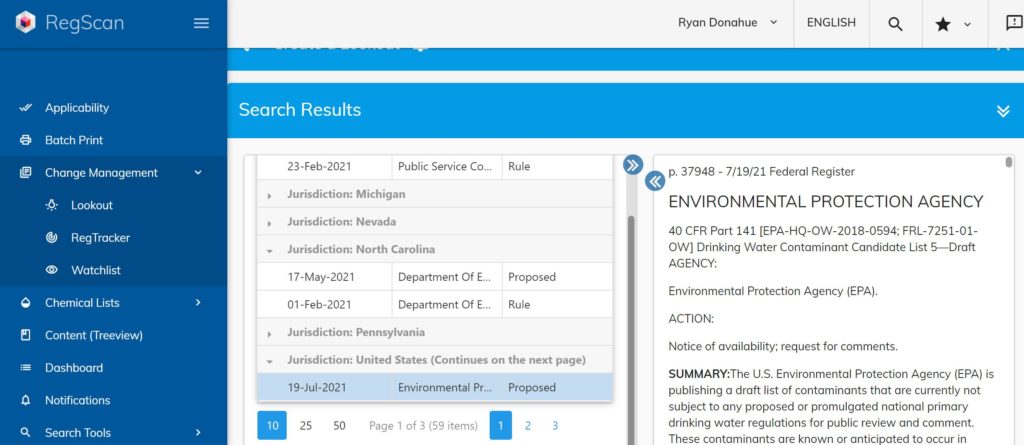PFAS are the extremely persistent, “forever chemicals”, that have been a hot topic circulating in the Environmental Health and Safety sphere for a few years. More recently, these chemicals have been under increased scrutiny by the EPA. In their November 2019 PFAS Action Plan, the EPA lays out a plan to create standards and remediate the current and future use of these chemicals given their potentially harmful health impacts.
There are a variety of ways that employees and consumers can be exposed to PFAS chemicals. Their usage among many manufacturing processes, products, and industries provides an opportunity for exposure and potential harmful health effects.
The EPA established provisional federal drinking water health advisories for two of the most common PFAS, PFOA and PFOS, in 2009. These advisories were revised in 2016 to lifetime health advisories due to the evolution of the science and research on these chemicals. Most recently in April, 2021, the call for the creation of a new EPA Council on PFAS was put out by EPA Administrator Regan of North Carolina. This memorandum detailed the importance of continuing to build on the EPA’s work of protecting the health of communities. Some of the suggestions include establishing public health strategies for programs involved in PFAS cleanup while always maintaining consistent communication and the honest exchange of information as the research develops.
For many states, the EPA’s plan has not been enough. Some states have started to act on their own when it comes to the regulation of PFAS. Most of these state regulations relate to drinking water and groundwater standards, and remediation efforts. Others have implemented emergency rulings regarding firefighting foam, another product that PFAS chemicals have been found in. The PFAS contamination issue is clear, and it is safe to say that these incredibly persistent chemicals are not going anywhere anytime soon.
If you and your organization need to keep up with federal and state regulations related to PFAS, our LookOut EHS Alert service would be a great tool for keeping up with the latest notices, emergency rules, proposed rules and final rules for different jurisdictions.

